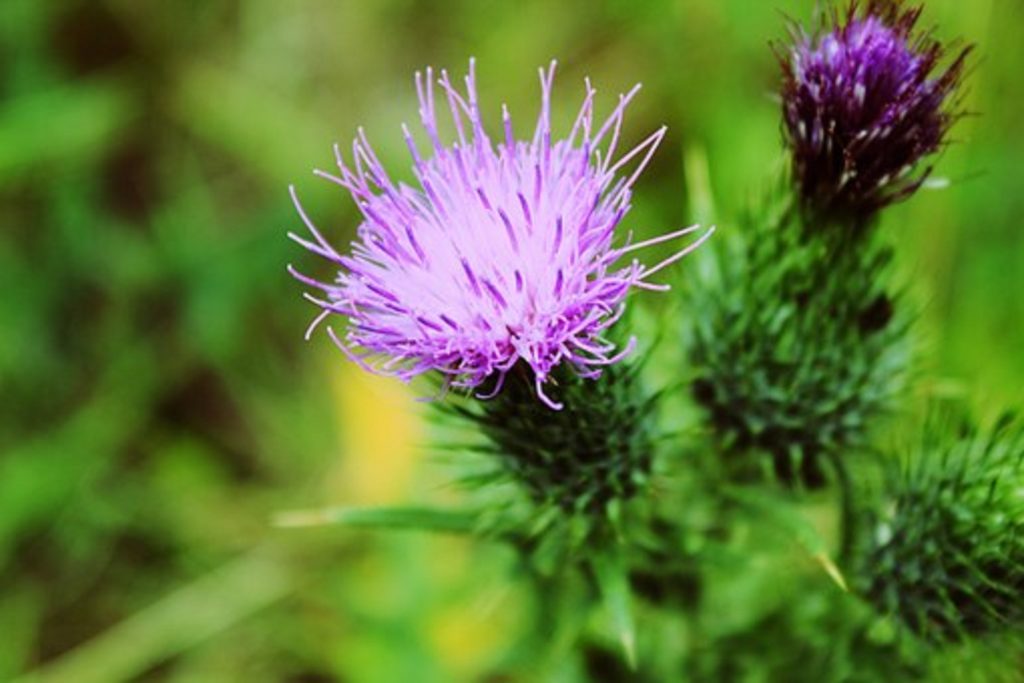Milk thistle, also called mary thistle and holy thistle, is a flowering herb native to the Mediterranean region but is now found throughout the world.
It’s a member of the family which includes sunflowers and daisies and matures in less than a year. Milk thistle has spiny stem branches and can grow to heights of 5 to 10 feet. The leaves are wide with white blotches or veins and the flowers are purple. Milk thistle spreads quickly and is considered a pesky weed in some parts of the world.
Milk thistle gets its name from the milky white sap that comes from the leaves when they are crushed.
The milk thistle fruit is small, brown, spotted, and shiny. It has been used for thousands of years as a remedy for a variety of ailments, and historically was thought to have protective effects on the liver and improve its function. The plant contains a phytochemical classified as a flavonoid and has an active compound called silymarin which can be extracted from the seeds.
So far, several scientific studies suggest that milk thistle:
- Protects the liver from toxins, including certain drugs that can cause liver damage in high doses.
- Has antioxidant and anti-inflammatory properties.
- It may help the liver repair itself by growing new cells.
- It stimulates liver cells to divide, helping to provide new cells to replace injured ones.
- Help improve several liver problems.
According to the University of Maryland Medical Center, silymarin is a natural antioxidant that also has anti-inflammatory activity. Some studies suggest that milk thistle may stop cancerous cells from dividing and interfere with the spread of cancer cells into healthy tissue. This has not been confirmed in clinical studies with human subjects. Also, results from small clinical trials of milk thistle for liver diseases have been mixed.
Milk thistle is generally available in capsules or as a liquid extract or tincture.
- The seeds are used to prepare capsules, extracts, powders, and tinctures.
- Standardized preparations of milk thistle contain 70 to 80% of silymarin.
- Each capsule of the dried herb contains about 120 to 140 mg of silymarin.
The use of herbs is a time-honored approach to strengthening your body and treating disease, however, herbs can trigger side effects and can interact with other herbs, supplements, or medications. You should take herbs with care, under the supervision of your doctor or health care provider.
Found value? Feel free to share!!
To Your Success,
Althea
Althea A. McLeish Wilson, RN, MSN
Promoting inner health & outer beauty!
Helping you thrive, not just survive!!
PS. Inner Health & Outer Beauty Store: Health & Wellness with Althea♦
PPS. Did You Find This Helpful? If so, please feel free to share!! Leave a comment or contact me at althea@altheamcleish.com.
References:

